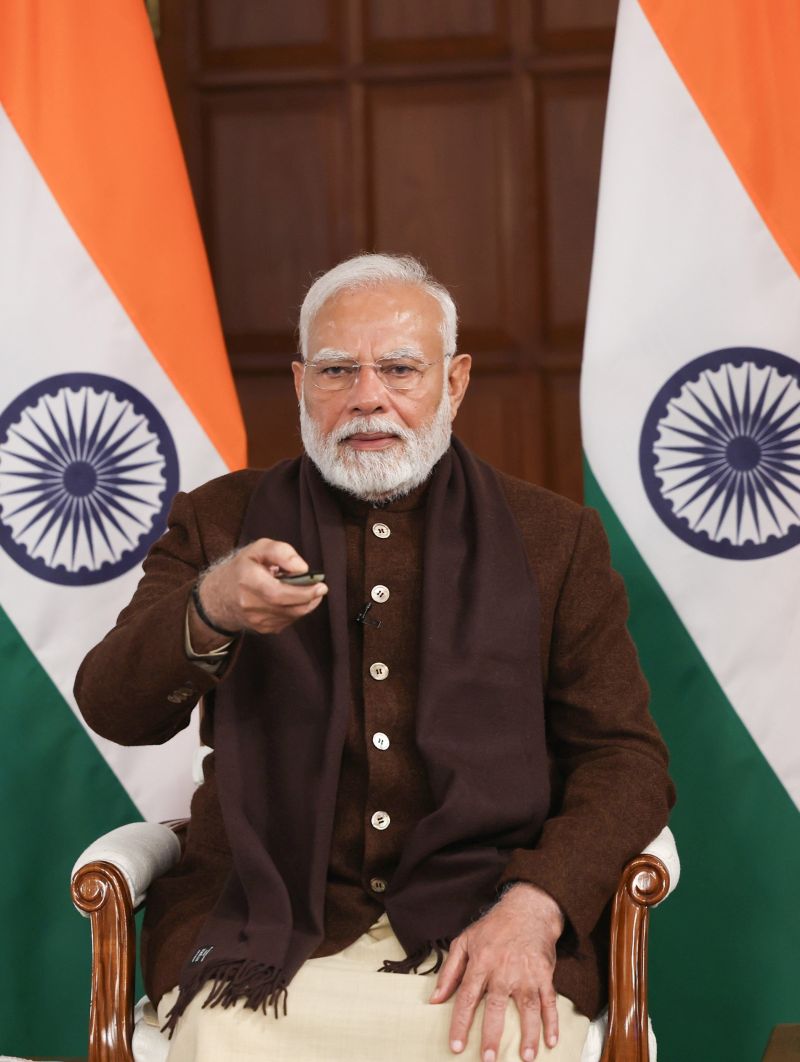After the recent blast in Delhi and the arrests that followed, former Chief Minister Omar Abdullah lamented that “all Kashmiris are now being looked at with suspicion.” His outrage is understandable – nobody wants to carry the burden of a crime they did not commit. But outrage alone cannot erase a deeper reality: suspicion does not arise in a vacuum. It feeds on patterns. It grows where silence refuses to confront the uncomfortable.
The uncomfortable truth is this: whenever a terror incident involves a Kashmiri-origin individual, Kashmir’s mainstream leadership, civil society, and influential voices rarely respond with the kind of loud, clear, unconditional denunciation that the rest of the country expects – and frankly, deserves. And when the expected condemnation doesn’t appear, the easy, lazy stereotype takes over: “If they aren’t condemning it, perhaps they don’t mind it.”
Unfair? Yes. But is it preventable? Also, yes. The tragedy is that Kashmiris end up paying the price for their own leaders’ timidity. Instead of owning the narrative, we surrender it to others.
The Sins of a Few Become Burdens of Many
India is a nation of a billion people – all of whom have their extremists, criminals, radicals and miscreants. Yet no other region’s population is flattened into one collective suspect the way Kashmiris often are. The reason is painfully simple: the Valley has lived through decades where a section of its own youth was routinely involved in insurgency and terrorism. That historical memory continues to shape perception.
But perception becomes prejudice only when the community stays silent. And it stays silent more often than not – as if it is more happy than sad on what is happening to the “other” side.
Whenever a Kashmiri-origin militant, handler or financier is arrested outside the Valley – whether in Delhi, Karnataka, Punjab or Rajasthan – the reaction from Kashmir’s leaders follows a familiar script, which is ambiguity instead of clarity, evasion instead of confrontation, and generalised victimhood instead of moral courage.
Condemnation, if it comes, is hedged with political qualifiers: “if found guilty,” “if the allegations are true,” “let the law take its course,” and so on. What never emerges is the straightforward sentence that India wants to hear: “This act is shameful, this individual does not represent us, and we stand firmly with the law.” In other words, Kashmiris tell you he has either come from Mars or it is yet another Hindustan ki chaal. More come out to prove the subject an innocent than as a criminal.
If leaders cannot say this, how can they demand that the rest of India stop suspecting us? They might spare average Kashmiris, since there are many of us who hold close ties and friendship with many people from other states, but they would certainly not spare Abdullahs, who have an impressive track record of siding with the wrong. Some of them are such that they have two hearts of their chambers beating out there in Paksitan.
The Funniest Defensive Reflex
Every time a Kashmiri youth is arrested anywhere in the country, an instinctive defensive reflex takes over the Valley. Human rights activists, politicians, and self-appointed community guardians rush to highlight that “he comes from a respectable family,” “he was targeted,” “he was picked up because of his identity,” or “agencies want to defame Kashmir.” But nobody says the opposite: that terrorism has destroyed Kashmir more than any other force in the last 35 years.
Nobody says: that ordinary Kashmiris are the first victims of radicalisation. Nobody says: that we owe it to our own dignity to reject terrorism loudly and repeatedly, not because Delhi wants it, but because our future depends on it.
The Valley wants sympathy without accountability. It wants acceptance without introspection. It wants freedom from stereotypes without challenging the reasons why those stereotypes emerged. This moral dissonance is the root of the suspicion we resent so much.
A Society without a Mirror
Kashmir’s political class suffers from a peculiar paralysis. Leaders want to sound nationalist in Delhi, but “pro-people” in Srinagar. They want to condemn terror enough to sound reasonable, but not so much that it angers street sentiment. The result is a confused, unconvincing middle ground where nothing is said clearly, nobody is offended, and everybody remains suspicious.
Civil society – the intellectual class, the clergy, the public influencers – fares no better. In a place where political statements are issued for everything from electricity cuts to weather manipulation theories, open condemnation of terror is almost absent. The silence is strategic. The cost, however, is generational. A society that refuses to denounce its own radicals allows everyone else to paint it with the same brush.
The Human Cost of Suspicion
This blanket suspicion is not merely emotional or rhetorical. It has a real impact on real people:
- Young Kashmiris studying outside are routinely questioned and profiled.
- Professionals fear being flagged at airports.
- Students hide their backgrounds just to be treated normally.
- Landlords refuse rooms.
- Employers hesitate.
And every time a terror incident takes place, the cycle resets – suspicion spikes, travel becomes tense, and the stigma tightens. Omar Abdullah is right: this is unfair. But he is wrong in assuming that unfairness alone explains it. Suspicion may be unjust, but it is not unprovoked. But none other than Omar Abdullah would tell you why it is unprovoked. But he won’t tell. Somewhere down the line it reaches him and his clan.
Lack of Clear Moral Positioning
Kashmir needs a culture of clear moral positioning, not because it will impress Delhi, not because it will silence critics, but because it will protect ordinary Kashmiris from being lumped together with extremists.
Imagine what would change if:
- Every mainstream leader condemned terror without qualifiers.
- Every cleric devoted even one sermon a month to rejecting violence.
- Every civil society group issued statements saying: “We stand with law, not with criminals.”
- Influencers, students, teachers – everyone – publicly dissociated from terror whenever a Kashmiri-origin individual is involved.
Kashmiris are not terrorists. But silence allows terrorists to represent Kashmiris. If we want to break the chain of suspicion, we must break the chain of silence first.




